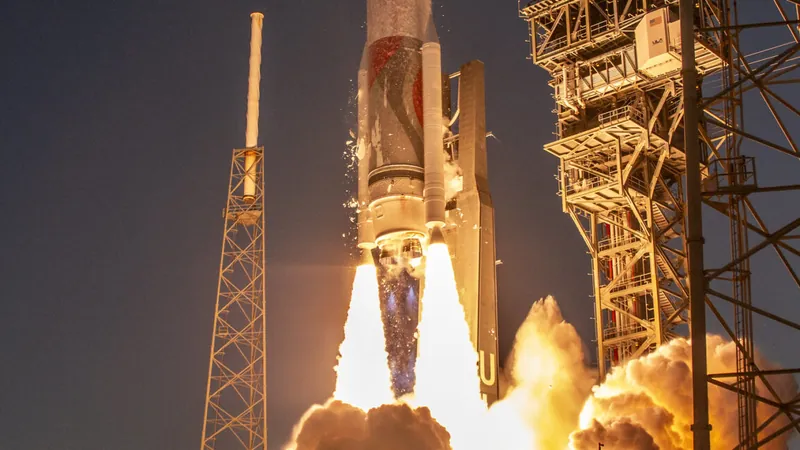
Space Force Gains New Ally: ULA's Vulcan Rocket Achieves Certification, Redefining Launch Landscape!
2025-03-26
Author: Kai
In a groundbreaking move for U.S. national security, the US Space Force announced on Wednesday that it has officially certified the United Launch Alliance's (ULA) Vulcan rocket for national security missions. This milestone represents a significant shift as it reduces the Space Force's reliance on SpaceX's Falcon rockets for critical launches.
According to Brig. Gen. Panzenhagen, the program executive officer for Assured Access to Space, “Assured access to space is a core function of the Space Force and a critical element of national security.” He emphasized that the certification of Vulcan brings additional launch capacity, resiliency, and flexibility, essential for our country's most important space-based systems.
This achievement closes a lengthy certification journey riddled with challenges, including multiple development delays and setbacks due to anomalies. Notably, a significant explosion during a test in northern Alabama in spring 2023 postponed Vulcan’s first test flight. Furthermore, a malfunction in October 2024, when a nozzle on one of the Vulcan's side boosters failed during its second test flight, added complexity to the certification process.
The comprehensive certification procedure for Vulcan entailed navigating a complex web of requirements. ULA had to satisfy 52 certification criteria, complete over 180 discrete tasks, and conduct two flight demonstrations. Additionally, there were 60 required payload interface verifications, 18 design and test reviews for subsystems, and a staggering 114 audits for hardware and software. While it sounds tedious, these protocols ensure the utmost safety and reliability for missions involving national security.
Commenting on the booster anomaly, ULA CEO Tory Bruno attributed it to a manufacturing defect that has since been isolated and rectified. “We have made appropriate corrective actions,” Bruno stated, following successful tests proving the modifications in February at a Northrop test site in Utah.
Looking ahead, Vulcan won't be ULA's next rocket to launch. The company will first deploy one of its remaining Atlas 5 boosters, which will carry Project Kuiper broadband satellites for Amazon, in a launch expected in April. Following this, Vulcan is set for its inaugural national security missions, USSF-106 and USSF-87, with the Space Force predicting the first of these could take place by this summer.
With Vulcan's certification now complete, ULA aims to ramp up the rocket's launch cadence. Initially aiming for around 24 launches in 2025, Bruno has moderated expectations to about a dozen. This will be a critical test of ULA's manufacturing capabilities and operational readiness in the competitive landscape of space launches.
The stakes are high as the U.S. looks to enhance its space capabilities amid growing global competition, and all eyes will be on ULA as it prepares for this new chapter. Will the Vulcan rocket meet the demands of national security and establish itself as a reliable player alongside SpaceX? Only time will tell. Stay tuned for updates as this story develops!



 Brasil (PT)
Brasil (PT)
 Canada (EN)
Canada (EN)
 Chile (ES)
Chile (ES)
 Česko (CS)
Česko (CS)
 대한민국 (KO)
대한민국 (KO)
 España (ES)
España (ES)
 France (FR)
France (FR)
 Hong Kong (EN)
Hong Kong (EN)
 Italia (IT)
Italia (IT)
 日本 (JA)
日本 (JA)
 Magyarország (HU)
Magyarország (HU)
 Norge (NO)
Norge (NO)
 Polska (PL)
Polska (PL)
 Schweiz (DE)
Schweiz (DE)
 Singapore (EN)
Singapore (EN)
 Sverige (SV)
Sverige (SV)
 Suomi (FI)
Suomi (FI)
 Türkiye (TR)
Türkiye (TR)
 الإمارات العربية المتحدة (AR)
الإمارات العربية المتحدة (AR)